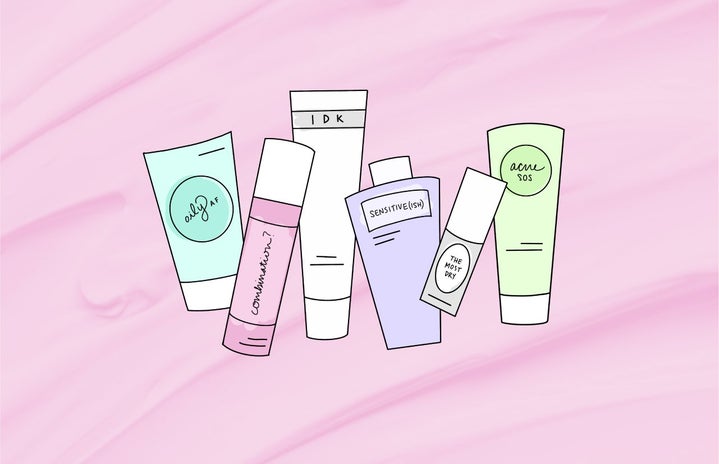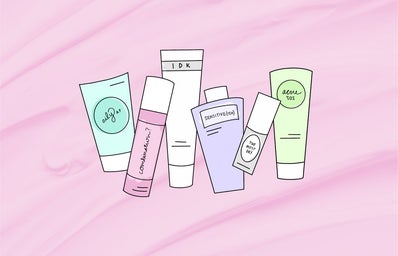As someone who has gone through two Accutane treatments for severe cystic acne, I am always thinking about my skin. I used to plop myself in front of a mirror at least once a day, squeezing every pore until my face was red with irritation. Driving in the car, I would use my hands to scan my face, feeling for new pimples emerging. Makeup can only do so much—it helped with redness but not the texture of pimples that dotted my entire face (and many times my shoulders and back). Now that the second round of Accutane has calmed the texture on my face, I am left with post-inflammatory hyperpigmentation that resembles rosacea. At almost 21 years of age, I sometimes feel like I am in the body of a pre-teen.
When the wave of body positivity finally hit the Instagram scene, I could not help but feel hopeless—how could I love my skin and feel confident with the gigantic, aching cysts on my face? They hindered my ability to smile as sharp pain would radiate through my cheeks when I moved my lips. What if, instead, I did not assign any connotation (positive or negative) to the state of my skin? What if my skin was just my skin and not something to be commented on? Body neutrality and its sub-movement, skin neutrality, respond to these exact questions.
To help with my skin acceptance journey, I began following several acne activists on Instagram. Over the past years, I have seen their journeys transform from hyper-focusing on the newest skincare products that shrink pores toward this skin neutrality movement. They now post pictures of un-photoshopped skin in different lighting and show how makeup can flake and separate over the course of a work day. They tell it like it is, dismantling beauty standards without trying to introduce new rules to how we should feel in our skin. People like @isotretinoinwiths, @nazhayabarcelona, @myfacestory, @dudelewami, and @skinpositivitymovement have revolutionized how I view my own skin while reassuring me that the struggles I am going through are completely normal.

As Hasina Khatib for Vogue India writes, this does not mean that you should not treat the underlying dermatological issue. For me, my acne caused me immense mental and physical discomfort. After all, I went through two rounds of a highly-regulated dermatological drug to try and eliminate my acne. Skin neutrality is a method for eliminating negative thoughts that tether the condition of your skin to self-worth. It is a way for one to distance their sense of being with their sense of aesthetic attractiveness.
Now when I wake up in the morning, I don’t spend an hour in front of the mirror afraid to leave the house in fear of what other people will think of my skin. I proudly tie my hair back for my runs, disregarding stares of others zoned in on my red cheeks. I feel cute putting on an accessorized outfit without feeling the urge to slather on BB cream, concealer, and foundation to tie everything together. And even if I put on a full face of makeup, I am not criticizing myself if it’s “imperfect”. Of course, I am still striving to rid myself of these painful pimples to better my mental and physical health. But no longer are they a sign of my intelligence, grit, and inner beauty.


